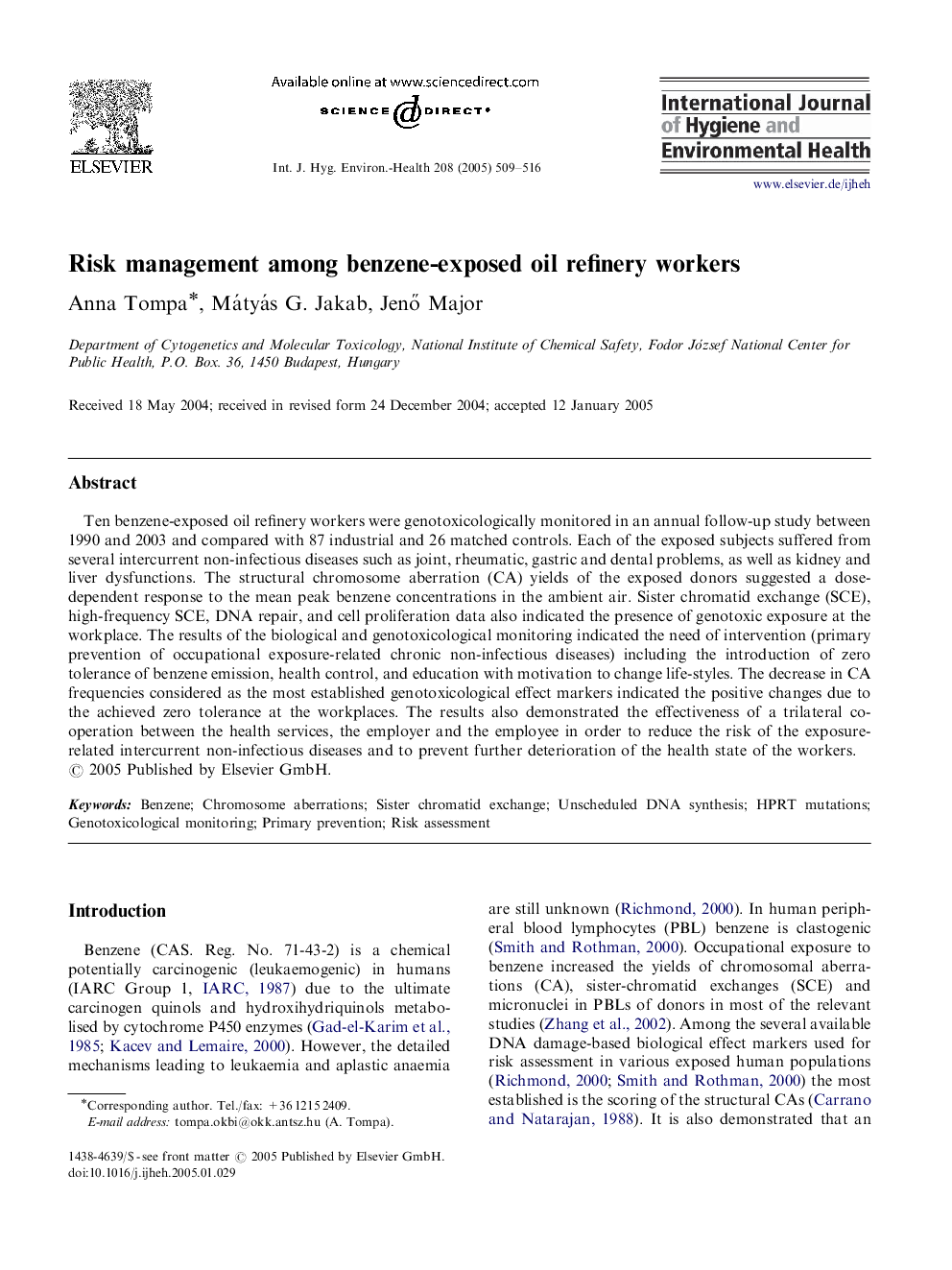| Article ID | Journal | Published Year | Pages | File Type |
|---|---|---|---|---|
| 9925382 | International Journal of Hygiene and Environmental Health | 2005 | 8 Pages |
Abstract
Ten benzene-exposed oil refinery workers were genotoxicologically monitored in an annual follow-up study between 1990 and 2003 and compared with 87 industrial and 26 matched controls. Each of the exposed subjects suffered from several intercurrent non-infectious diseases such as joint, rheumatic, gastric and dental problems, as well as kidney and liver dysfunctions. The structural chromosome aberration (CA) yields of the exposed donors suggested a dose-dependent response to the mean peak benzene concentrations in the ambient air. Sister chromatid exchange (SCE), high-frequency SCE, DNA repair, and cell proliferation data also indicated the presence of genotoxic exposure at the workplace. The results of the biological and genotoxicological monitoring indicated the need of intervention (primary prevention of occupational exposure-related chronic non-infectious diseases) including the introduction of zero tolerance of benzene emission, health control, and education with motivation to change life-styles. The decrease in CA frequencies considered as the most established genotoxicological effect markers indicated the positive changes due to the achieved zero tolerance at the workplaces. The results also demonstrated the effectiveness of a trilateral co-operation between the health services, the employer and the employee in order to reduce the risk of the exposure-related intercurrent non-infectious diseases and to prevent further deterioration of the health state of the workers.
Keywords
Related Topics
Life Sciences
Environmental Science
Health, Toxicology and Mutagenesis
Authors
Anna Tompa, Mátyás G. Jakab, JenoË Major,
